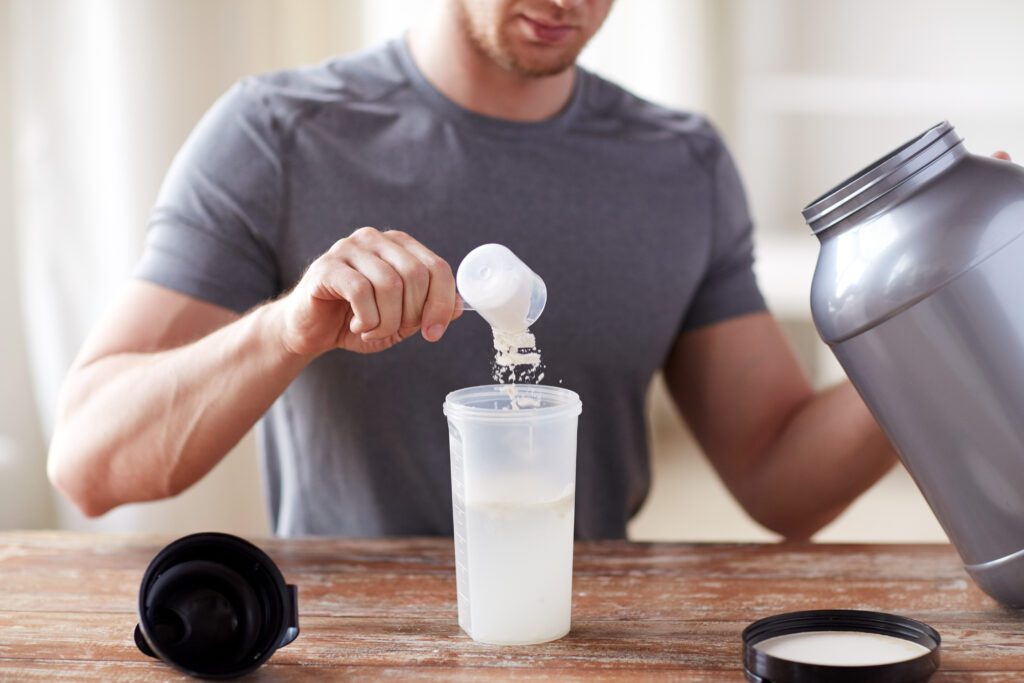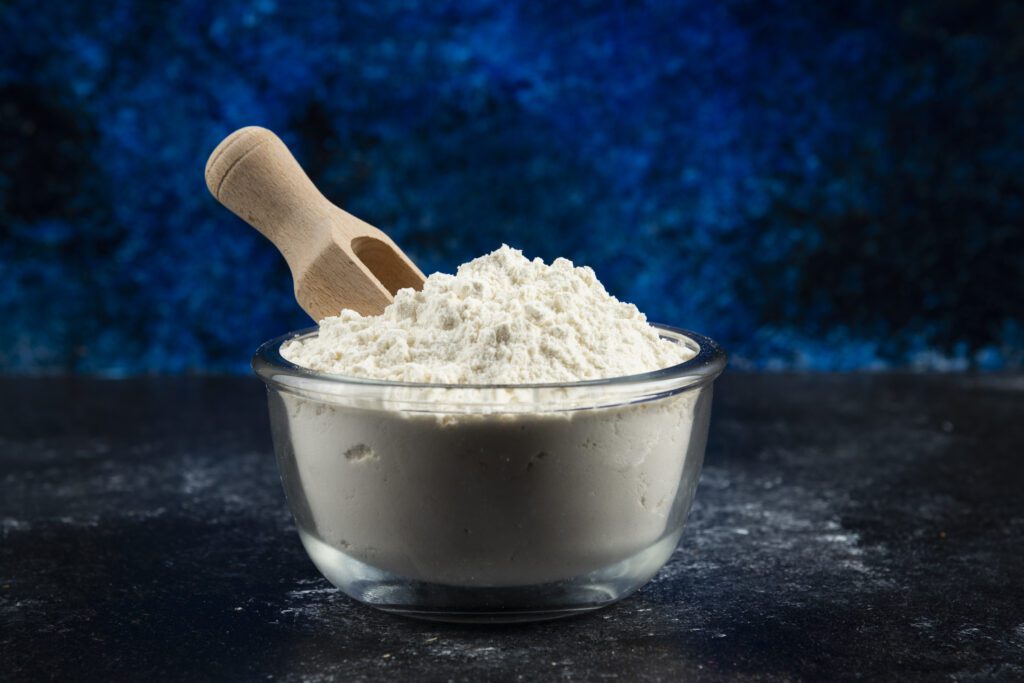Creatine is one of the most widely studied supplements in the health and fitness world. Most people think of it as something only bodybuilders or athletes use. But a new review of dozens of studies shows that creatine could offer benefits far beyond bulking up at the gym. From brain health to bone strength, creatine has quietly built a scientific reputation as a multi-purpose supplement that supports more than just muscle growth.
Why Creatine Matters: The Basics
Creatine is a compound naturally found in your muscles and brain. The body makes some creatine on its own, and the rest comes from dietary sources like meat and fish. Once stored in muscles, creatine helps fuel quick, explosive bursts of movement such as sprinting or heavy lifting. But the benefits go beyond athletics.
Recent science has linked creatine supplementation to better memory, improved recovery, stronger bones, and even mood support. These effects happen because creatine plays a key role in cellular energy production. It helps replenish ATP, the energy currency of your cells. When ATP runs low, so does your performance, both physically and mentally.
Nine Groups That Could Benefit Most From Creatine
Based on the research review, here are nine distinct populations that may experience noticeable improvements from daily creatine use.
1. Athletes and People Who Train Hard
This is the most obvious group. Those who lift weights, do high-intensity workouts, or compete in sports with explosive movements have long used creatine for its performance-enhancing effects. It improves muscular strength, increases power output, and helps with faster recovery between sessions. A standard daily dose of 3 to 5 grams is enough to improve strength and lean body mass over time.
2. Older Adults Looking to Preserve Muscle
As people age, they naturally lose muscle mass, a condition known as sarcopenia. This can lead to weakness, slower mobility, and higher fall risk. When older adults supplement with creatine while doing resistance training, the results are impressive. Studies show increased muscle size, improved strength, and better balance. For aging adults, maintaining muscle is not just about fitness, it is also about independence.

3. People With Sarcopenia or Sarcopenia Risk
Even before old age sets in, many people experience early signs of muscle wasting. Sarcopenia can affect individuals with chronic disease, malnutrition, or those recovering from long hospital stays. Creatine has shown benefits in improving strength and physical performance in people diagnosed with or at risk for sarcopenia. Daily supplementation supports muscle protein synthesis, preserves lean mass, and improves daily functioning.
Read More: What’s Really Hiding in Your Protein Powder? Shocking New Study Issues Warning To Consumers
4. People Recovering From Injury or Illness
Even without heavy exercise, creatine helps with muscle preservation and recovery. That makes it useful for people recovering from surgery, illness, or injury who are temporarily inactive. The supplement supports cellular repair, maintains lean tissue, and helps restore strength once physical therapy begins. It is one of the few performance supplements that works during both high and low activity phases.
5. Vegetarians and Vegans
Creatine is naturally found in animal-based foods. That means plant-based eaters get very little from diet alone. Studies show that vegetarians tend to have lower creatine stores in their muscles and brain. When they supplement with creatine, they experience even larger gains in strength, endurance, and memory compared to meat eaters. A daily supplement can bridge this nutritional gap.
6. Postmenopausal Women Concerned About Bone Health
Creatine may not seem like a bone supplement, but new research suggests it helps improve bone structure when combined with resistance training. This is especially important for postmenopausal women, who face higher risks of osteoporosis. One theory is that creatine enhances muscle function, which in turn places more healthy stress on bones, encouraging bone density growth. Some studies even suggest improvements in bone geometry.
7. People With Traumatic Brain Injury (TBI)
Research suggests creatine may offer neuroprotective effects following traumatic brain injury. In studies involving both animals and humans, creatine supplementation was linked to reduced brain cell damage, better cognitive recovery, and less inflammation in the brain. This is because the brain uses creatine to maintain cellular energy and function, especially under stress. Individuals recovering from concussions or more severe TBI may benefit from higher doses of creatine under medical supervision.
8. People With Heart Disease or Cardiovascular Risk
Creatine may also support cardiovascular health. Some studies have found improvements in endothelial function, which affects how blood vessels respond to blood flow. Others have shown reduced levels of homocysteine, an amino acid linked to heart disease risk. In people with chronic heart failure, creatine supplementation has been associated with improved exercise tolerance and muscle function. While more research is still needed, early evidence suggests that creatine may be a helpful supplement for some heart patients.
9. Anyone Interested in Brain Health and Mood
Creatine is not just for muscles. It is also stored in the brain, where it supports cognitive function. Supplementation has been linked to better working memory, faster mental processing, and mood improvements, especially in stressful situations. One study found that people under mental fatigue performed better after taking creatine. Doses up to 10 grams per day have been tested for cognitive benefits, especially in sleep-deprived or elderly adults.
How Much Creatine Should You Take?
Most people benefit from a standard dose of 3 to 5 grams per day. This can be taken at any time and does not need to be cycled. The idea of loading creatine, taking 20 grams a day for a week, is not necessary for long-term benefits. If cognitive improvement or bone health is the goal, some studies suggest increasing the dose to 10 grams daily, split into two servings.
Is Creatine Safe?
Creatine monohydrate is one of the most well-researched supplements in the world. It has been tested across all age groups, health conditions, and activity levels. For healthy individuals, it is considered very safe. The most common side effects are mild, including temporary water retention or bloating. These effects often disappear after a few weeks.
People with kidney disease or other chronic medical conditions should consult a doctor before starting creatine. But for the general population, especially those who fall into one of the nine groups above, it is a safe and affordable option to consider.

What Type of Creatine Should You Buy?
The best form is creatine monohydrate. It is the version used in nearly all scientific studies, is affordable, easy to mix into liquids, and highly bioavailable. Other forms like creatine hydrochloride, buffered creatine, or creatine nitrate are heavily marketed but offer no consistent advantage over monohydrate in clinical trials.
When choosing a brand, look for third-party testing and minimal added ingredients. Many athletes prefer unflavored powders that can be mixed into a protein shake or glass of water.
Read More: Cardiologist Says That Adding 1 Exercise To His Routine Made Him Fitter Than Ever At 70
Should You Take Creatine If You Do Not Work Out?
Yes, according to this review. Even people who do not engage in intense physical activity may benefit from creatine. That includes older adults, those with limited mobility, individuals recovering from illness, and those with brain or heart conditions. Creatine supports muscle mass, energy production, and brain function regardless of training status.
Creatine is no longer just a gym supplement
The new research highlights a wide range of benefits that extend well beyond sports performance. If you fall into one of the nine categories listed, athlete, aging adult, vegetarian, person recovering from illness, postmenopausal woman, someone at risk for sarcopenia, a person recovering from brain injury, someone with heart disease, or a person focused on brain health, this simple daily supplement could make a big difference.
Always check with a healthcare professional before starting any supplement routine. But for most people, adding creatine monohydrate to your daily regimen is a low-risk, high-reward strategy backed by decades of science.










